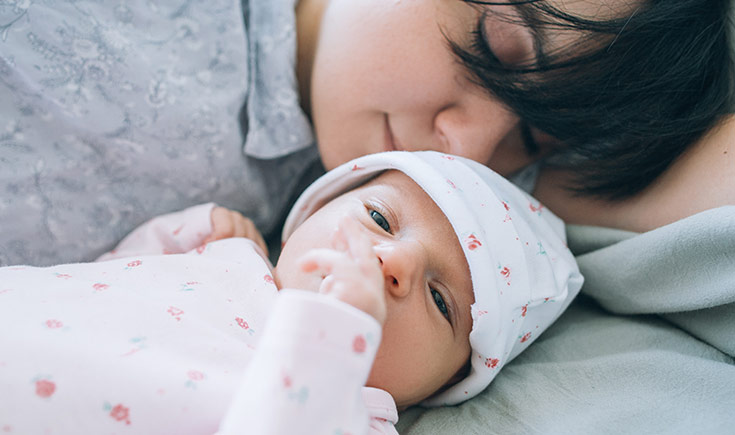

The post-birth period can be a really tough time for women. There is much joy around the new arrival but it is an intense learning period as you get to know your baby, and learn how to look after a new born. The focus shifts from mother to baby once your baby is born.
It’s important to keep some focus on your own health post-birth, as not only are you recovering from pregnancy and birth, you have much less time to invest in quality sleep, cooking nutritional food and generally getting strong again.
Breast feeding can be quite demanding, combine this with a heavy post-birth bleed, less sleep of poorer quality, and it can be a recipe for disaster if you don’t pay attention to your own health. A frequently overlooked risk to women’s health is post-birth low iron.
As the body naturally sheds the contents of the uterus once the baby is born, it’s a time where the body is naturally losing iron. So there is a renewed importance to look after yourself and your diet.
Symptoms of low iron include tiredness, shortness of breath and dizziness.
Being low in iron can impact your mood, and leave you feeling irritable and short tempered. This can have a domino effect; it can impact on how you interact with your partner and how you bond with your baby. Feeling exhausted all the time can also affect your ability to breast feed. The combination of these factors can put you at higher risk of past-natal depression.
The World Health Organisation say that consequences of low iron during the postpartum period can have serious long-term health ramifications for both mother and baby. Studies have shown that between 10 – 30 percent of postpartum women living in the west are suffering from low iron. So there are lots of reasons to focus on your iron levels.
Other less common symptoms of very low iron include:
- changes in how food tastes
- unusual cravings for certain foods or substances, such as ice
- a sore tongue
- a headache
- ringing in your ears (tinnitus)
- itchy skin.
Focusing on a diet rich in iron will help, as will taking an iron supplement. You can read more about iron-rich foods here.
But post-birth healing encompasses more than just diet. WHO makes the following recommendation in an effort to stem the risks of low iron after birth: “Oral iron supplementation, either alone or in combination with folic acid, may be provided to postpartum women for 6–12 weeks following delivery for reducing the risk of anaemia in settings where gestational anaemia is of public health concern.*” You can read more about the study and its recommendations here.
A combination of a regular iron supplementation, healthful nutritious food, rest whenever possible, and a network of family and friends who can support you, will all go a long way towards rebuilding your strength after the birth of your baby.























